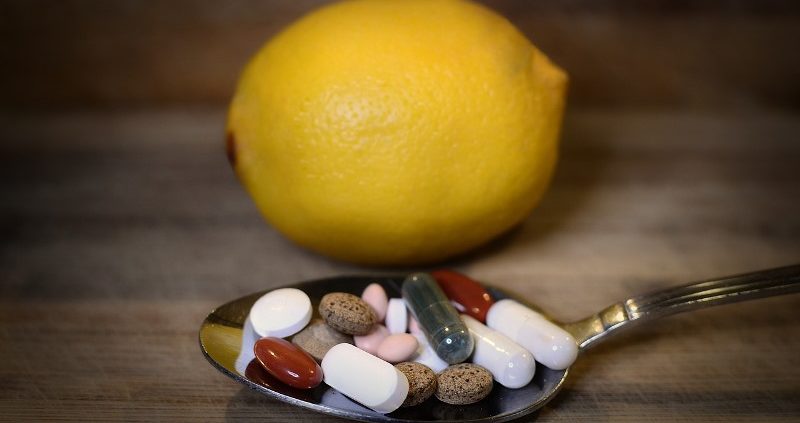Antibiotics have been doing miracles in saving a lot of lives worldwide. Various deadly bacterial infections have become an ordinary treatable condition today, thanks to the discovery of antibiotics. But did you know that some people become resistant to antibiotics? This condition is known as antibiotic resistance.
But what is antibiotic resistance? How does a person become resistant to it? If you want to know the answer to those questions and more, keep reading this article till the end.
Table of Contents
What is Antibiotic Resistance?
To better understand what antibiotic resistance is, imagine you have a bacterial infection. Common symptoms of bacterial infection are high fever, fatigue, headache, nausea, vomiting, and swollen lymph nodes.
These symptoms are very uncomfortable to the feeling, and only an antibiotic can treat the infection and make you feel better. However, if you have antibiotic resistance, even antibiotics could not help you treat your condition and make you feel better.
There is nothing doctors can do to help you with your condition because no matter how hard they try to prescribe you antibiotics, you will never be treated. In fact, even a simple tooth infection has killed many people in the past because there were no antibiotics to treat them.
Antibiotic resistance has been one of the challenges in public health today. An estimated 2 million people in the U.S. alone acquire infections that cannot be treated using antibiotics due to resistance. And more often than not, this results in death.
What Will Happen If You Become Resistant to Antibiotics?
If you become resistant to an antibiotic and get infected with the bacterium that becomes resistant, a mild infection can escalate and become a severe condition. If this is the case, you will have to visit the hospital more often, plus you will be given more potent antibiotics to kill that resistant bacterium.
This type of antibiotic is very expensive, so it’ll help to acquire a medicine discount card if you ever come to this stage. You can check one of the best rx discount app’s offers to explore your options. If you have a discount card, you can ensure that you’ll get the administered antibiotics and medication without breaking your bank.
Moreover, this resistance can be spread to other bacterias, which also makes them resistant to antibiotics. So, for example, if you have antibiotic resistance, treating pneumonia and meningitis can now be difficult.
Doctors will have no other option but to give you stronger antibiotics that can be bad for you. Strong antibiotics can kill good bacteria in your guts, which can affect your digestive system. If this happens, you can experience abdominal pain, diarrhea, vomiting, loss of appetite, bloating, and indigestion.
There are also good bacteria that help our immune system to fight off diseases and infections. This commensal bacteria boosts our immune system so that our body can fight pathogens effectively. Taking antibiotics too much or too frequently will have an adverse effect on your immune system.
What Causes Antibiotics Resistance?
The cause for having a resistance to antibiotics is the usage of antibiotics itself. Antibiotics can be a helpful drug and, most of the time, safe to use if properly administered to patients. However, antibiotics are prescribed and used even if it is unnecessary, resulting in antibiotic resistance.
Overuse of antibiotics is another cause of antibiotic resistance. Too much antibiotic intake kills off good bacteria and makes resistant bacteria in our body multiply. Additionally, frequent and inappropriate usage of antibiotics makes bacterias or other microbes mutate so that the medication won’t work against them anymore.
Some bacterias become resistant to antibiotic medications that were once used to treat them. One of few examples is the Staphylococcus aureus. The S. aureus is the bacteria that causes skin and tissue infections such as boils, cellulitis, and furuncles. It is known because of its ability to fight off antibiotic medications and strive inside our bodies.
Moreover, antibiotic-resistant bacteria can also be transmitted from one person to the other in hospitals or communities. Because of this, antibiotic resistance continues to increase in the U.S., thus making it one of the problems faced by the healthcare industry nowadays.
How to Prevent Antibiotic Resistance?
It would be best if you made sure that you would not become resistant to antibiotics. Because if this happens, you will put your life and the people around you in danger. To prevent being resistant to antibiotics, you must avoid inappropriate use of antibacterial medications.
Bacterial and viral infections often have the same symptoms, thus making everyone think that bacteria cause viral infections. And most of the time, people visit their doctors and demand to prescribe them antibiotics.
Antibiotics do not help you treat viral infections since a virus caused it in the first place, not bacteria. Hence, taking antibiotics is useless and becomes dangerous to your health. Tests should be taken first to ensure that a bacteria caused the infection before the doctor prescribes antibiotics.
Listen to your physician. They know what they are doing and are also aware of the risks of their decisions. Do not self-diagnose and do self-treatment just because Google says so. Furthermore, good personal hygiene and frequent hand washing are the best ways to prevent resistant bacteria from spreading.
Be Educated
Use this article to educate yourself about antibiotic resistance. You can even perform more in-depth research about this condition. Antibiotic resistance isn’t something you should take lightly, as it causes severe harm to you and your loved ones’ health. By staying informed and practicing proper hygiene, you’ll less likely form any resistance to antibiotics.






